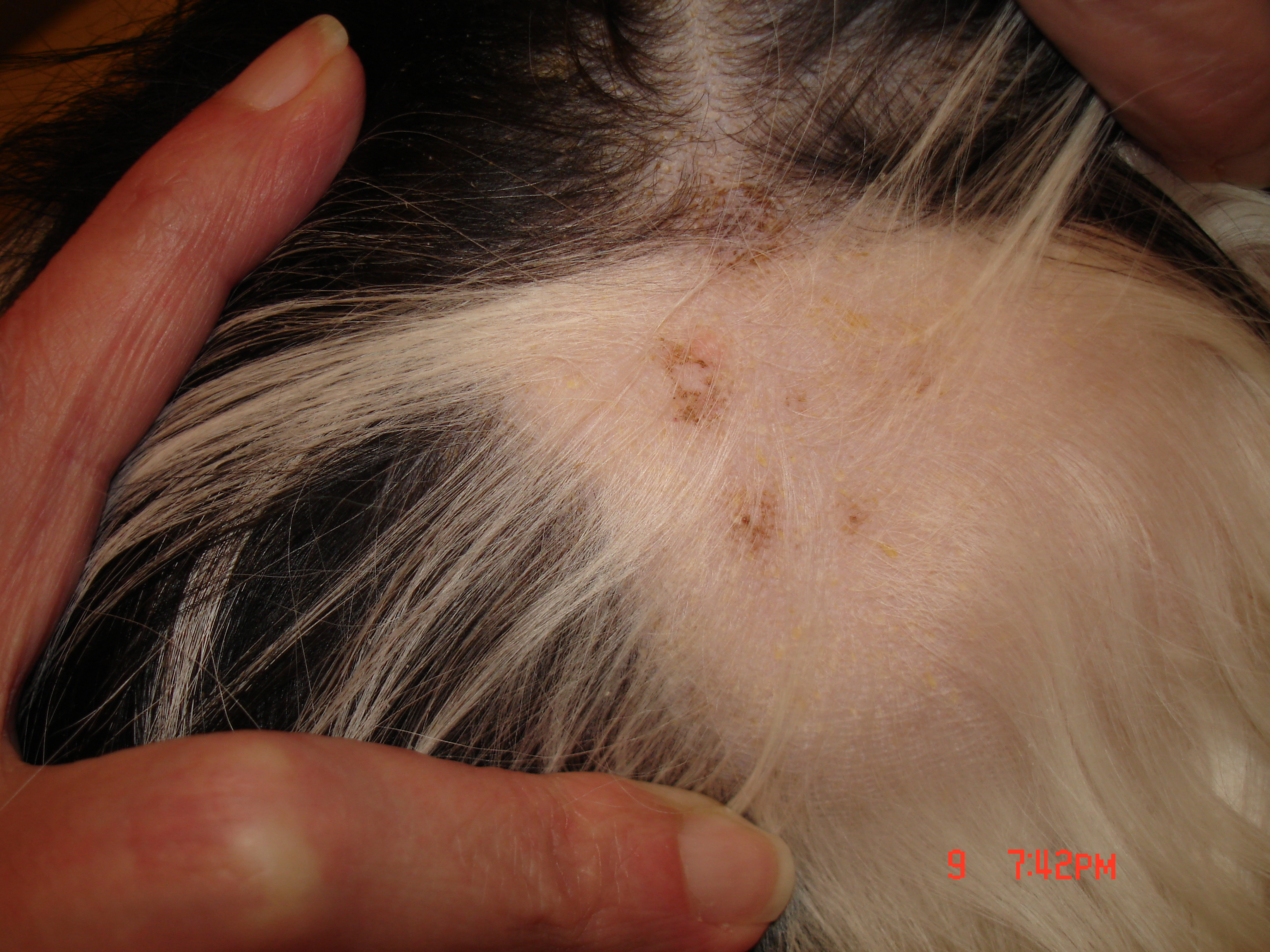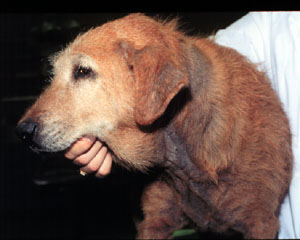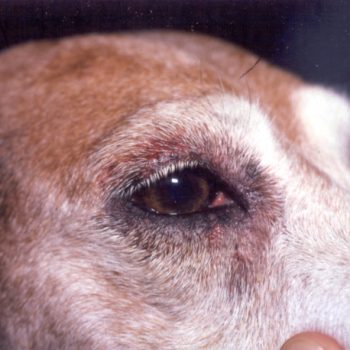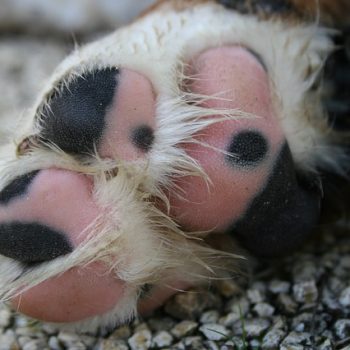Sunday, April 25th, 2021
There has been a lot of recent negative social media buzz on hydrolyzed diets. There’s very little that will put pet parents (myself included) into an emotional tailspin than information regarding something that can harm our four-legged family. This is especially true when the opinion comes from vets that many dog parents see as authority figures and thus the message gets repeated by their followers. Eventually, fear replaces factual information. I’m asking you to hit the pause button on all emotional reactions and consider the following.
What may lead a dog parent down the road of hydrolyzed foods?
The typical scenario starts with a dog owner who is frustrated as their dog deals with various allergic responses to food. Read more The Reality vs The Hype of Hydrolyzed Diets
Thursday, October 10th, 2019
One of the most common directives we see on social media is to add omega 3 fatty acids to the dog’s diet. Without a doubt omega 3s play important roles but adding them whether through fish and/or fish oils, krill or other marine oils and vegetarian options like chia seeds, flaxseed meal et al, putting all the focus on omega 3 addresses only part of the story. This is especially true when skin issues crop up. Here’s why.
Both omega 3 and omega 6 are essential fatty acids which means the body can’t produce them, so they need to come from food sources. Together they: Read more Can You Feed Too Much of a Healthy Fat?
Tuesday, October 21st, 2014
A dog with yeast overgrowth is not a happy animal, and I’ll admit to being short tempered when I read some of the articles/blogs/websites that provide less than factual information. Frankly, we need to do better than that, so to that end, I want to walk you through the real deal about yeast.
What it is: The most common type of yeast in dogs is called Malassezia, and is a normal resident of the skin. Normal. Keep that in mind.
What it isn’t: a new invader.It’s been coexisting quite happily and harmoniously on your dog forever.
Read more How To Get Rid of Yeast
Wednesday, December 18th, 2013
Although we may think that the body lives alone, it actually shares itself with many organisms including yeasts. The type that’s most common in dogs is called Malassezia and it exists happily on skin without causing a problem unless something happens to create havoc, giving the yeast the opportunity to overgrow. For example, an allergic flare-up is a fairly common cause. An allergy to what though? It could be to a food, or something in the environment. It can also be due to a hormone imbalance, or an immune deficiency (veterinarians can test for this) and if the dog happens to have excessive oil production of the skin (seborrhea), s/he is predisposed to yeast overgrowth to begin with. So, how do you know the problem is yeast? Read more Smelly, Itchy Dogs: Can It Be a Yeast Infection?
Tuesday, August 28th, 2012
This is day 20 of Tori eating Hill’s Z/D and her itching is at least 75% resolved. There’s the possibility that it could be even better, but she happens to have a dad who shows his love by feeding her things that should be avoided right now. Cheese, bites of bread as well as the licking of a plate after he’s eaten most of the egg that was on it…you get the idea. Of course, this works against Tori’s best interest, but saying so gets me nowhere. So, I’m not sure how to resolve it, but I’m pretty darn sure food allergies were Tori’s major issue. Otherwise, Z/D wouldn’t have helped at all. This result is exactly what I’d hoped for – a period of eating a hydrolyzed diet to help make some sense of the multiple possibilities for her chronic itchiness. It’s come about faster than I’d expected – bonus! Read more Hill’s Z/D
Wednesday, August 8th, 2012
Sometimes we need a stop-gap measure to decipher the cause of itchy skin. Let me use our Tori as an example.
Tori has multiple health problems and three of them can cause her to mutilate her muzzle, ears, paws, neck, bum, and do some hobbling while she air-scratches. The most concerning is Syringomyelia (SM) which can cause her to roll around and scratch like a fiend. The second is that that she has environmental allergies, and third is food allergies. Because all three cause her to scratch frantically, it’s anyone’s guess as to why she does it at any given time. Trial and error brought a fresh food diet for her. She tolerated fish (cod and tilapia only), eggs, carrots and rice. This has been her diet for more than one year and she was doing beautifully. But this past month has been hellish for her. Read more Multiple Possibilities for a Dog’s Itchy Skin
Saturday, August 4th, 2012
A food allergy involves the immune system. Think peanut allergy in people, for example. BIG reaction! The immune system has a memory like no other, so an exposure to the allergen will cause a reaction every time. In dogs, you’ll see this as excessive scratching, chewing paws, biting of flanks, and there may be ongoing gastrointestinal trouble.
An intolerance to a food (think lactose intolerance) will also cause a reaction, but the immune system is not involved. You drink some milk, have some pain and diarrhea and then it’s over. Unlike an allergic reaction which causes the body to send off chemicals to protect itself from what it believes is a foreign invader for weeks to months, an intolerance ends once the offending food has been removed from the diet.
So what? Why does the difference matter?
Read more Food Allergies and Intolerances
Tuesday, January 10th, 2012
If I had to pick one thing that drives me batty about home-prepared diets, it’s the willy-nilly feeding promoted by certain book authors and chat groups. Don’t get me wrong. Feeding a varied diet can work well, but when it doesn’t, it’s usually just when you’re feeling pretty cocky about it. The dog can start to break down. And I do mean break down!
Feed a home-prepared diet that meets the recommended allowances for dogs (per the NRC), and this simply doesn’t happen. Here are some scenarios of how and why the willy-nilly method might look great as well as the how and why of the break down – followed by a story to explain my little rant: Read more Can Diet Be Related to Skin Problems in Dogs?
Thursday, December 15th, 2011
They all do it, but some more than others and some are obsessive about it. If you’ve ever tried to go to sleep with background sounds of lick, lick, slurp, chew, lick, you know what I mean when I say it can really get on your nerves. You tell the dog to stop, s/he does for a while and then goes back to it, usually with more fury. Some bite their nails as well. You would too, if you were itchy and prevented from scratching. That’s one side of the coin. The other is neurotic behavior and it’s a tough one to break. Since I’m not a trainer or behaviorist, let me tell you what’s helped dogs that have this issue due to diet and a few other factors.
Diet first: it’s unlikely that the dog is focusing only on paws if the itch is due to food allergy, but it’s not unheard of. Usually, the itch is everywhere, but more severe at the paws, ears, anal area and thighs. Read more Dogs That Lick Their Paws
Tuesday, November 29th, 2011
Most dog owners think of healthy skin as being that which doesn’t leave white flakes on the coat and isn’t scaly to look at. True enough, those two things are signs to look for, but how do you get there?
We know that the skin is an organ and it needs proper nutrition, but we don’t often connect this to water intake. Healthy skin minimizes the migration of moisture upward from deeper dermal tissues. Fatty acids in the skin do a good job of preventing water loss. In contrast, fatty acid deficiency can lead to a poor barrier, encouraging water loss, so the dog might drink a lot more water to compensate.
Protein is required for development of new skin, and while some diets provide ample amounts of protein, the quality matters. For example, protein from sources other than eggs, milk, fish or meats are of inferior quality. Read more Your Dog’s Skin Health
Friday, November 18th, 2011
Numerous trials show that a combination of primrose oil and fish body oil (wild salmon oil is my preference) helps dogs with atopic dermatitis. I really like that science tries and often wins in pointing us in the right direction, but I think that observation has a place as well. For example, science asks how much of each fatty acid is the right amount and under what circumstances. Important questions, but are we going to sit around while a dog is mutilating him/herself until scientific knowledge provides an answer?
Veterinary dermatologists seem to have decided not to wait. Most will supplement with essential fatty acids once the more obvious problems have been ruled out. No fleas, no mites, no bacterial infections, no yeast overgrowths, etc. Or, treat any of the above via medication(s) and shampoo therapies and if a problem remains, use essential fatty acids, sometimes in combination with particular vitamins and/or minerals. Read more Does Your Dog Have Itchy Skin?











